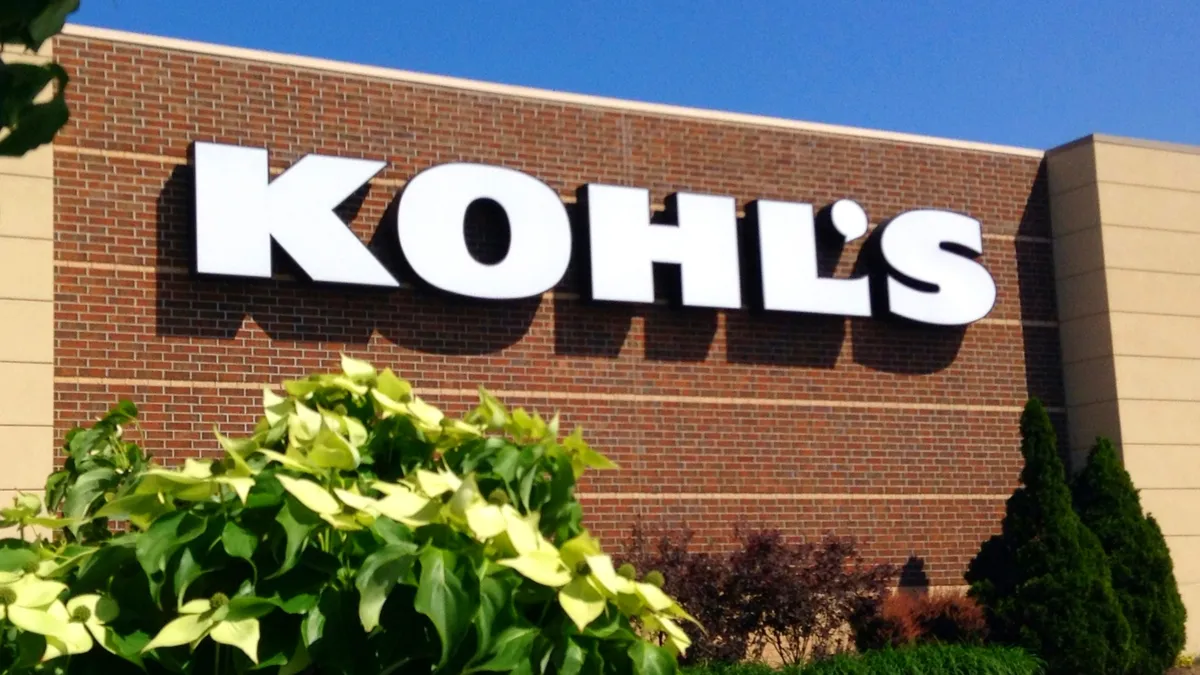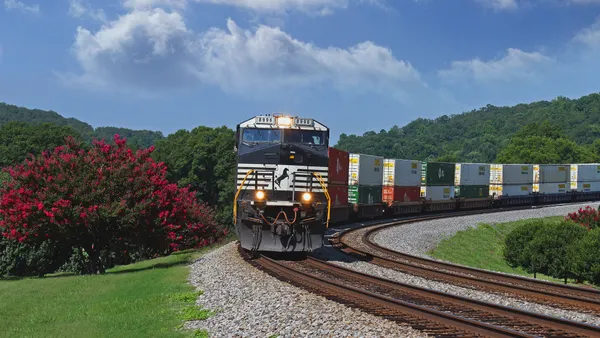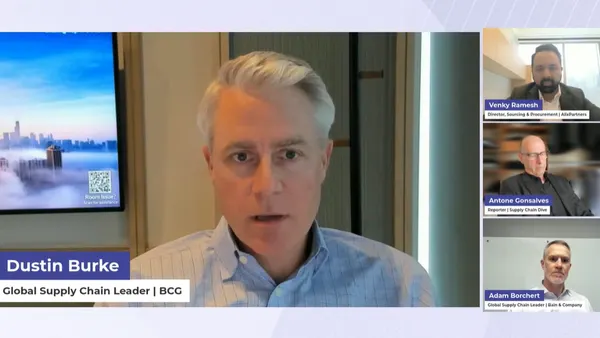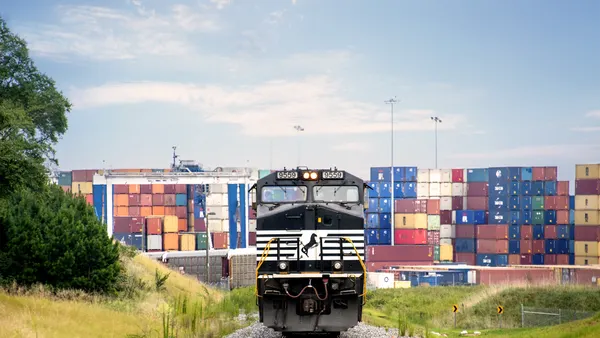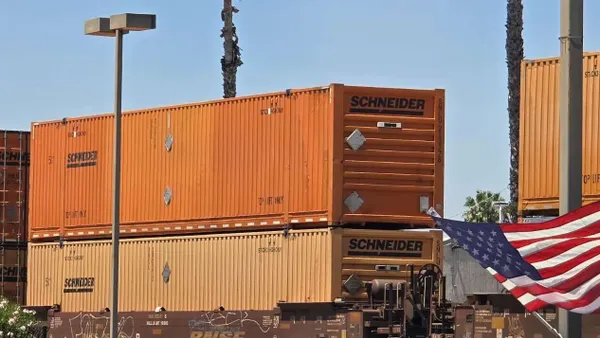Dive Brief:
- Kansas City Southern plans to focus more on improving trip plan compliance for customers, Sameh Fahmy, executive vice president for precision scheduled railroading, said on the company's Q3 earnings call Friday.
- "We are measuring the traffic of our customers and the connection times and how they [are] missing the connection from train to train," Fahmy said of the company's efforts to monitor plan compliance for intermodal trips across the U.S.-Mexico border.
- KCS considers cross-border intermodal to be a potential growth area for its business, and CEO Patrick Ottensmeyer acknowledged that trip plan compliance will be important in gaining that business. KCS' current trip plan compliance for this traffic is 60%, Fahmy said.
Dive Insight:
Overall intermodal volume grew 2% YoY for KCS in Q3, which ended Sept. 30, and cross-border traffic was up 10% YoY. But this wasn't enough to bolster intermodal revenue, which fell 11% YoY for the quarter.
"Revenue per carload/unit decreased due to mix, lower fuel surcharge, shorter average length of haul, and the weakening of the Mexican peso against the U.S. dollar," the railroad explained in its earnings release. "Volumes increased due to cross-border and domestic shipments driven by restocking of inventory, e-commerce and retail business, and tight trucking capacity."
KCS is not the only railroad that sees cross-border intermodal as a potential growth area. Last month, BNSF released an advertisement for its cross-boarder intermodal service that presented it as a more convenient alternative to trucking.
Intermodal and truckload have their respective benefits to shippers, according to InTek, a logistics company that does some work with shippers on cross-border freight. Truckload is often quicker and is more flexible than intermodal. But intermodal is more sustainable, provides more ability to scale, reduces congestion concerns and is often the cheaper option, according to InTek.
"We understand where the connections can have issues and we are working on that," Fahmy said of the company's efforts to improve trip plan compliance. He later added, "So, 60% is not great, but it is quite decent considering what we have been through during this quarter. And now with our eyes also very focused on it ... these numbers will improve."
Hurricane Laura caused major disruptions to KCS's network during the most recent quarter.
"So, we had, like, four days essentially when we couldn't run traffic, on the very critical north-south artery between the U.S. and Mexico," Fahmy said.
KCS' overall volume was down 4% in the quarter compared to the prior year. But some analysts are hopeful that KCS's plan for cross-border growth could mean gains in the new year.
"While visibility to demand in some end markets is limited, [KCS] indicated that it expects its cross-border business to remain strong driven by intermodal, automotive, grain, and refined products," reads a research note from UBS. "Growth in these segments supports our 7.9% y/y total volume growth estimate for 2021."




